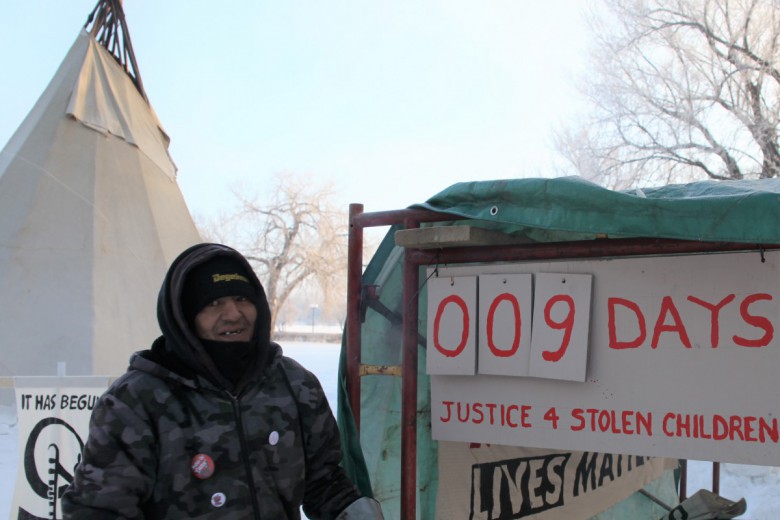
“You think there’s not a lot goin’ on
Look closer baby you’re so wrong.”
Northey Valenzuela, Corner Gas theme song
If Chicken Little had gotten her wings on Colonel Sanders’ business plan back in 1955, she would probably have felt the same way Saskatchewan environmentalists did when they read Fortune Magazine’s chops-licking article about their province last month:
“Cold, landlocked, and boasting as its largest metropolis the city of Saskatoon, Saskatchewan may not be top of mind for most Americans. But the Canadian province is one of the richest spots in the world when it comes to natural resources. It’s the world’s largest producer of uranium. It’s the biggest producer of the fertilizer potash (current price: $1,000 a ton, up from $300 this time last year). It is the world’s largest exporter of green lentils and chickpeas. And it’s home to enormous supplies of oil and gas: The U.S. buys more oil from Saskatchewan than it does from Kuwait. No wonder the CEO of one Fortune 500 company – Jim Prokopanko of Mosaic, which has a potash mine near the town of Esterhazy – describes the prairie province as ‘the next sovereign wealth fund.’” (Jon Birger, “Where Business is Booming: Saskatchewan has 10,000 job openings. Bring your parka,” November 4, 2008)
What has the Fortunistas drooling (and the environmentalists sweating) is not just the province’s wealth, but its goofy government’s inexplicable determination, come good times or bad, to give that wealth away to any and all comers for next to nothing. As Fortune reports, Saskatchewan’s fledgling conservative premier Brad Wall (“a glib and personable 42-year-old who’s as comfortable talking NFL football as he is quoting Thomas Friedman”) addressed an energy conference in New York in the spring where he “promised not to raise oil royalties [from their current rock-bottom levels], which won him a standing ovation from the bankers in the crowd.”
Such foolishness has repercussions far beyond Saskatchewan’s ruler-straight borders, particularly for anyone concerned about energy policy, climate change, nuclear expansion, wealth inequality or economic diversification in this country. Given its vast stores of oil, gas, uranium and potash, Saskatchewan could be where Canadians’ struggle to pull this country back from the brink of environmental armageddon will be lost or won.
Naomi Klein suggests in this issue that we could learn a lot from Latin America and its response to what Eduardo Galeano calls its “curse of wealth.” While it’s surely presumptuous to compare this province’s prospects to that vast continent’s bloody and brutal experience of ecological imperialism, there are certainly valuable lessons to be gleaned. As Daphne Eviatar noted in the New York Times on June 7, 2003, “scholarly studies for more than a decade have consistently warned of what is known as the resource curse: that developing countries whose economies depend on exporting oil, gas or extracted minerals are likely to be poor, authoritarian, corrupt and rocked by civil war.” Indeed, resource-rich jurisdictions, “developing” or not, pay a heavy price for the extraction of their wealth. One need only look next door to the swaggering one-party state of Alberta to confirm this maxim: resource windfalls and real democracy are in many ways inimical. This is the difficult political reality facing prairie populists today.
However, just as Latin America has reemerged in recent years as a crucible of progressive change on a global scale, Saskatchewan has a proud legacy of being a workshop of radical politics, progressive policies and populist visionaries on the national scene. There is, indeed, “a lot goin’ on” in Saskatchewan, and progressives from coast-to-coast would be well advised to keep tabs. The magazine you hold in your hands, then, is intended as a primer to get you started.
This issue also marks two exciting developments for Briarpatch. As I wrote in the September/October letter from the editor, Briarpatch, a national magazine with readers in every province and territory, first sharpened its thorns as a Saskatchewan-focused news magazine at a time when such a thing was very sorely needed. Recognizing the crying need for such a voice again today, but no longer able to play that role in its current format, Briarpatch is preparing to launch a sister publication, The Sasquatch, a Saskatchewan-focused news tabloid, in early 2009. To subscribe to or learn more about The Sasquatch, please visit www.briarpatchmagazine.com/sasquatch.
To complement this upcoming launch, Briarpatch itself will shift from slim octannual to beefed-up bimonthly publication, beginning with our next issue on food politics. (We’ve been joking that we balked at calling ourselves a “hemidemisemiannual” publication after David Wasserman pointed out in our letters page that this would be a more accurate term than octannual, and changed our publishing frequency instead.)
Expanding our page count and abandoning our mantle as Canada’s only tri-fortnightly publication (?!) will better enable us to focus on producing high-quality thematic interventions into Canada’s political culture, while prudently reducing our postage costs and environmental footprint. It means you’ll have to wait two weeks longer for – but should expect to get proportionately more enjoyment from – each issue of Briarpatch.
Finally, we’d like to extend heartfelt congratulations to Claudia Dávila, whose Luz comics grace our pages each issue, and who on October 10 gave birth to a healthy baby by the blessed name of Yolanda Hae Jin Dávila Cho. Claudia, whose comics explore with great compassion, creativity and hope the day-to-day challenges of growing up in an era of peak energy, will undoubtedly bring the same compassion, creativity and hope to her new role. We wish her and her family all the best.




